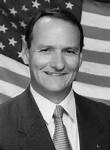 It has been a couple of weeks since my last post and during that period I have had some significant professional and personal events that have reminded me of the importance of the commitment to continuous improvement, especially when the opportunity to improve and advance is contingent upon recognizing and owning weaknesses and mistakes.
It has been a couple of weeks since my last post and during that period I have had some significant professional and personal events that have reminded me of the importance of the commitment to continuous improvement, especially when the opportunity to improve and advance is contingent upon recognizing and owning weaknesses and mistakes.
I was prompted to to write this post after reading a tribute to a friend and colleague who has retired after 24 years in the election business- Steve Weir- the Clerk/Registrar of Contra Cost County, CA. The tribute recognized in Steve a quality that all election administrators should develop or enhance- the ability to say “We made a mistake.”
In a previous post I pointed out the paradox between election administrators’ conscientious commitment to perfection and the benefits of recognizing and learning from mistakes. It is impossible to improve if mistakes or weaknesses are hidden or unacknowledged.
“… it is understandable for election officials to conscientiously set a high yet unobtainable standard of perfection and to choose not to see or admit to ever falling short of that standard. The price is too high. Yet the adoption of this seemingly noble and highly responsible standard -perfection- has two paradoxically negative and unanticipated outcomes. First, it reinforces an unreasonable and unattainable expectation, among the public, media and politicians, that an election is only acceptably “good” when conducted without issues or errors. Second, the façade of perfection often adopted by election administrators truncates the feedback loop that is a necessary part of the cycle of learning and improving.
The personal cost of publically acknowledging “learning moments” can be unnecessarily high and painful. The unrecognized organizational cost of ignoring or hiding the “learning moments” is even higher.”
In an opinion piece published this past weekend, Lisa Vorderbrueggen, the election beat reporter for the Contra Costa Times wrote in a piece entitled “Weir’s honesty is a model worth emulation”:
“Journalists have a special place in their otherwise cold little hearts for the true public servants who pursue the public good even when it runs counter to their personal interests.
Steve Weir is such a man. He retired Friday after 24 years as Contra Costa County’s election chief and clerk-recorder.
Many people know the diligent Weir for his unyielding political neutrality, his extraordinary kindnesses and his willingness to stand publicly for same-sex partner equality.
But reporters know the former Concord mayor as that exceedingly rare elected official who routinely sent out news releases that detailed mistakes no one knew — and might never have known about.
‘Steve was not only totally forthright when you asked him questions, but he would also tell you things you needed to know, even if it didn’t make him or his office look good,’ said one journalist who covered Weir for many years.
His biggest crisis came when scrutiny over a tight 1996 San Ramon Valley schools tax measure revealed thousands of incorrect or missing sample ballots and the destruction of ballots. Weir ended up in court, and the grand jury published a critical report.
But Weir didn’t duck and cover.
Instead, he moved his desk into the election department lobby and faced the crisis head-on.
Oh, there were still mistakes. Since then, Weir has confessed to everything from ballots mailed to the wrong houses to ballots with missing races to ballots missing altogether.
‘I believe you should confess, fix the problem and move on because there is always another mistake waiting, and the next one could bury you,’ Weir said.
Elected officials everywhere would do well to model themselves after Weir: Tell the whole truth early and often. Shoulder all the blame but generously share the credit. Adopt a ‘give respect, get respect’ approach both inside and outside the office.
These practices are not only the right thing to do; they pay big dividends when it comes to voters’ trust — not a single person challenged Weir in six elections.”
I can’t think of a better tribute to be paid to an election administrator from a reporter. However, transparancy and honesty are not the only constructive reason to acknowledge shortcomings. Again from a previous post:
“…errors and mistakes in elections seldom affect the outcomes and should not be considered inherently fatal to acknowledge. The healthy and constructive approach, which I am advocating working toward, is one in which it is safe to acknowledge mistakes and failures for the purpose of learning and improving from them. To do otherwise casts unjustified suspicion on elections and election administrators and inhibits a culture of continuous learning and improvement from which the profession can greatly benefit.”
Stay tuned.
